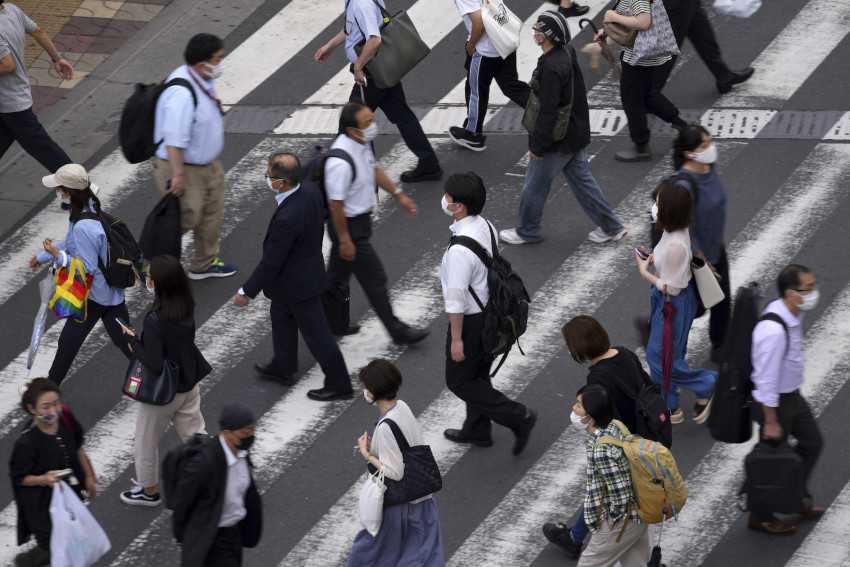Japanese gov't backs 4-day workweek, but specialists split
20 June, 2021

Japan's government plans to encourage firms to let their employees decide to work four days weekly instead of five, aiming to enhance the balance between work and life for folks who've family care duties or need additional time off to obtain new skills.
The federal government included the promotion of an optional four-day workweek in its twelve-monthly financial policy guideline finalized Friday by Prime Minister Yoshihide Suga's cabinet.
Experts are divided, however, on whether the new initiative, designed to address challenges posed by the country's labor shortage, will be widely accepted, with labor and management both voicing concerns about possible undesirable outcomes.
For employers, while people working four days weekly may become more motivated, this might not exactly improve their productivity enough to pay for the lost workday. Employees, meanwhile, fear pay cuts.
Among expected advantages are helping persons with family-care tasks avoid the necessity to quit their jobs, promotion of recurrent education, and helping more people undertake side jobs, the government said.
The coronavirus pandemic has helped the thought of a four-day workweek gain traction as medical crisis causes people to invest more time in the home.
In late April, the ruling Liberal Democratic Party recommended that the federal government take policy measures to facilitate adoption of the system.
The LDP said working fewer days is expected to promote "diversified working styles" and prompt employees with new skills to go to growing industries such as IT.
At a key economical and fiscal policy panel meeting in mid-April where in fact the promotion of a four-day workweek was discussed, Suga said his government would consider expanding support for individuals willing to improve their careers through recurrent education without leaving their jobs.
Among major economies, Australian, Canadian, Italian and U.S. employees work longer hours than Japanese, based on the Organization for Economic Cooperation and Development's survey. But Japan's labor market remains rigid, with productivity showing limited improvement as persons take fewer holidays in comparison to other developed countries and labor mobility stays low.
According to a survey conducted on over 4,000 organizations by the labor ministry last year, 8.3 percent of them were giving their employees more days off than under a five-day workweek.
Internet and e-commerce service giant Yahoo Japan Corp started allowing its employees who need additional time off for caregiving to take three days off a week in April 2017.
"It has been favorably received generally, with some employees saying that it became better to match their days off with their children's activities," a Yahoo Japan spokesman said.
Meanwhile, Hisashi Yamada, vice chairman of think tank Japan Research Institute, said he will not expect a four-day workweek to rapidly spread in Japan despite having the government pushing it since it would complicate personnel management and evaluation.
"Suppose, if employees take second jobs, it could be difficult for managers to learn how long they work in total also to evaluate equally those who take two days off weekly and those who take three. From the employees' standpoint, they would not want to see their income from their main jobs decrease," said Yamada, who's amply trained in labor economics issues.
At Yahoo Japan and several other firms offering a choice of fewer workdays, extra holidays are unpaid. The Yahoo Japan spokesman said nearly 100 of some 7,000 employees at the business had applied for the four-day workweek as of April. Those who want more days off for such purposes as acquiring new skills and taking side jobs aren't eligible for this program, he said.
Japan Research's Yamada said he believes some small- and medium-sized businesses cannot afford to give such extra days off, plus some businesses might make an effort to cut labor costs by applying a four-day workweek even to employees who would like to work more days.
"It will be very important to the government to draw up a framework guaranteeing a worker's to choose whether to take three days off a week," he said.
Takuya Hoshino, an economist at the Dai-ichi Life Research Institute, says simply introducing a four-day workweek might not exactly necessarily encourage employees to use their time off in a manner that benefits their careers or plays a part in the economy.
"It is important for companies to make it clear what they intend in adopting such a system" and offer necessary support to employees to that end, he said.
Source: japantoday.com
TAG(s):
